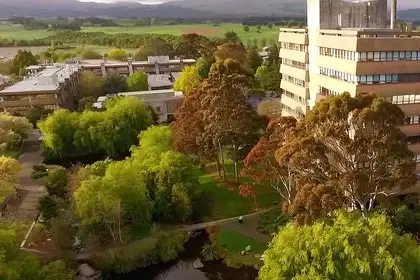
There will be a School of Agriculture and a School of Veterinary Science from next year.
Massey University will build on its strengths in agriculture and veterinary science with two new schools to lead these areas.
There will be a School of Agriculture and a School of Veterinary Science from next year. The new schools will super-cede the current institutes and be part of the College of Sciences.
Massey stands out in the international Quacquarelli Symonds (QS) rankings with two subjects ranked in the top 30, agriculture and veterinary science. In agriculture, Massey is number one in New Zealand and it is the only university in New Zealand offering veterinary science.
College of Sciences Pro Vice-Chancellor Professor Ray Geor says Massey has a proud history in agriculture and is a recognised global leader in sustainable agriculture and food systems.
“We want to build on our heritage and success in these areas and further develop our strengths to ensure they meet the changing needs of the sectors,” he says. “Agriculture at Massey is big and integrated across the university. We have expertise across the food value chain including in pastoral-based animal production, plant and soil sciences, horticulture, genetics, water quality, animal health, agri-technology and farm business management.
"About 1500 students study agriculture and agricultural-aligned programmes and about 10 per cent are international students choosing Massey for their post-graduate studies. There are 180 staff and more than 120 research programmes in progress and these include those with our many partner organisations in the primary industry sectors. Last year, we had well over 5000 visitors to our Massey farms including several overseas groups.
"Massey is also well regarded internationally for its veterinary science programmes and aligned population health programmes. The EpiCentre and Molecular Epidemiology and Public Health Laboratory (mEpiLab) at Massey are recognised as World Organisation for Animal Health (OIE) Collaborating Centres. They are the only centres of this type to be recognised in the Asia Pacific.”
The Massey School of Veterinary Science will have more than more than 1000 students, 260 staff and has more than 170 research programmes underway.
“There will be a lot more to come from these schools in the new year,” says Professor Geor.